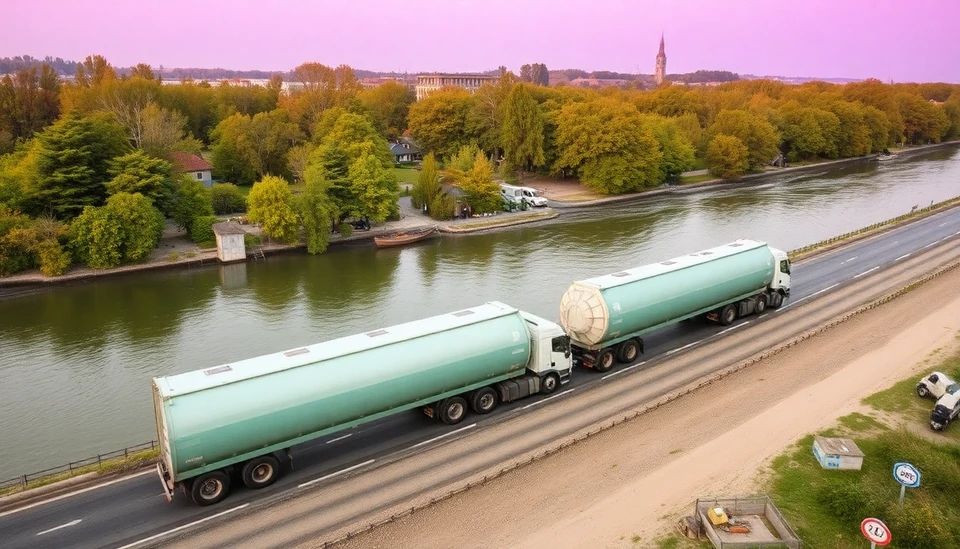
The recent dry spell in Europe has had significant repercussions on logistics and freight operations. With water levels dropping dangerously low along the Rhine River, a critical artery for transportation, diesel freight has seen a surprising surge. This increase is primarily attributed to shifts in shipping routes and methods necessitated by the environmental conditions.
As the Rhine experiences historically low water levels, which can hinder the movement of larger vessels, cargo transporters have been forced to adapt quickly. The impact of the water scarcity has reshaped the dynamics of freight operations, leading to a substantial uptick in diesel-powered freight transport as companies scramble to maintain their supply chains. This new reliance on trucking and rail, which often utilize diesel fuel, underscores a broader trend where companies prioritize speed and efficiency amidst challenging environmental conditions.
Historically, the Rhine River has been a vital channel for goods moving from the heart of Europe to the North Sea. With its extensive navigability, disruptions in its water levels can have cascading effects on commerce and trade across multiple sectors, severely affecting grain shipments, industrial materials, and consumer goods. The current drought is not only impacting shipping costs but also raising concerns about the sustainability of supply chains in the wake of climate extremes.
Experts are noting that the continuing dry conditions could lead to higher freight prices due to the increased reliance on diesel trucking. This situation is creating a knock-on effect where businesses are now reconsidering their logistics strategies, often opting for more expensive alternatives to ensure timely delivery. Analysts have projected a potential increase in diesel fuel demand, which could subsequently influence fuel prices across the region.
With forecasts indicating that the dry weather may persist, stakeholders in the logistics sector are urged to remain vigilant. The ongoing adjustments to transportation methods highlight not only the immediate impacts of climate change but also point toward long-term transformations necessary for adapting to future environmental challenges. It has become evident that the scale of adaptability needed could reshape the freight industry as companies seek to strike a balance between operational efficiency and cost management amid tougher conditions.
As the situation evolves, further scrutiny on infrastructure and policy changes will likely follow. Economic analysts suggest that this could pave the way for discussions on investment in alternative transportation methods and greener technologies that could mitigate the impact of adverse weather trends in the years to come.
The effects of the drought on freight transport serve as a reminder of the interconnectedness of environmental conditions and global trade. It draws attention to the pressing need for strategies aimed at enhancing the resilience of supply chains against climate variability and emphasizes the importance of sustainable practices in preventing similar crises in the future.
The Rhine’s current scenario is a microcosm of broader challenges facing the transportation sector, dictating immediate adaptability and future foresight in logistics planning. As industries and policymakers respond, the necessity of integrating climate resilience into the core of transport strategies cannot be overstated.
#Rhine #Drought #DieselFreight #Logistics #SupplyChain #ClimateImpact #FreightTransport #Sustainability #ShippingIndustry
Author: Victoria Adams




